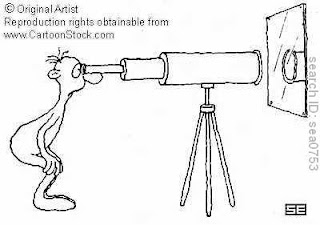
narcissism (noun) : a psychological condition characterized by self-preoccupation, lack of empathy, and unconscious deficits in self-esteem; see also, narcissist (better known as my mother, my ex-husband, an inordinate number of my female friends)
__________________________________________________
But enough about me!
The real news is that narcissistic personality disorder (characterized by an inflated sense of self-importance and the need for constant attention) has been eliminated from the upcoming revision of the DSM.
see: www.nytimes.com/2010/11/30/health/views/30mind.html
Critics of course are concerned over how a treatment plan will be implemented if narcissism is removed as a personality disorder. Speaking from my own experience, I have yet to meet a narcissist who has changed, therapy or no therapy, and become less self-centered and more empathetic. So should we even care about them?
I think that since there's now room in the DSM for new personality disorders, how about one for those enabling all the narcissists out there? Because if therapy can help the enablers then the narcissists will be left to deal with each other, right?
And picking up on the whole 'daydream believer' melodyfest, maybe then the world will be a better place.

